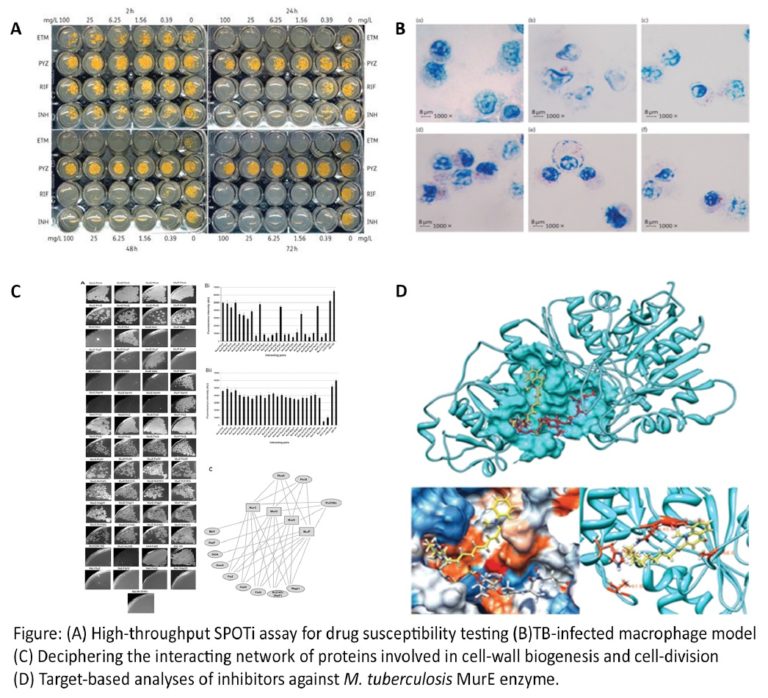
Professor of Molecular Microbiology and Biochemistry
Based at Birkbeck
Professor of Molecular Microbiology and Biochemistry
ISMB-Mycobacteria Research Laboratory: Despite a concerted global effort to prevent the spread of tuberculosis (TB), approximately 10 million new cases and 2 million deaths were reported in 2016. As many as 50 million people worldwide are currently infected with multi-drug resistant TB and 20 million people are predicted to die from TB before the end of this decade.
Mycobacterium tuberculosis is a member of the order Actinomycetales and causes TB. The order Actinomycetales includes other pathogens, such as Mycobacterium leprae, Mycobacterium avium, Mycobacterium marinum and Mycobacterium bovis. These pathogens are major concerns in both human and animal health. A key common feature of these related genera are their complex cell-walls, which consist of an unusual mycolyl-arabinogalactan-peptidoglycan complex.
Our research interest is primarily focused on characterising the physiology of the different metabolic states of Mycobacterium spp., tackling antimicrobial resistance through validating novel therapeutic targets, from identifying hits to optimising novel leads and repurposing existing immuno-modulatory drugs to cure TB. Our lab is specialised in molecular biology techniques to manipulate DNA, RNA, proteins and lipids to characterise therapeutic targets and elucidate their structure, function, regulation and inhibition. We have integrated high-throughput enzymatic and whole-cell phenotypic assays for screening biological properties of natural or synthetic chemical inhibitors of mycobacterial morphology, growth and viability in vitro as well as in infected macrophage models mimicking the intracellular host-environment. Our expertise in microbiology enables us to generate genetically-modified and/or chemically-derived mutants and perform phenotypic and genotypic evaluation on these infectious pathogens of global concern.

